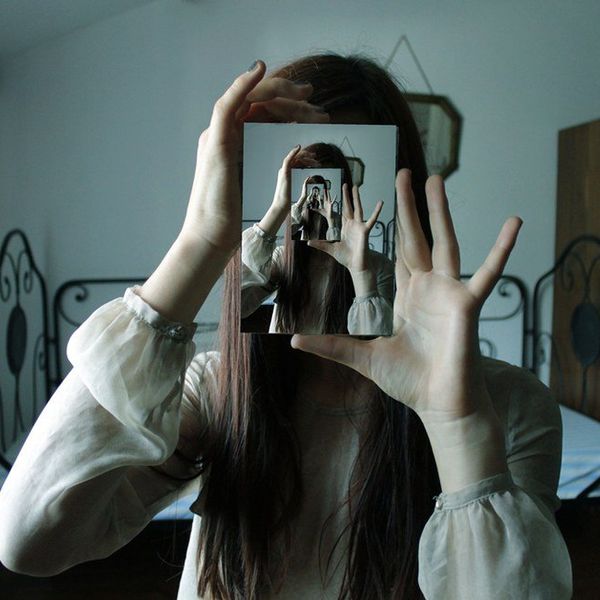"Just got out of the hospital for an attempted OD..."
When I texted my friend and asked how they were doing, that was the last response I expected to see flash across my screen.
It had been awhile since I had checked in, but life is busy and chaotic and I was struggling with my own baggage so I didn't think anything of it.
At least not until I got that text.
When I read it, myriad emotions rushed through me, panic, fear, hurt, love and overwhelmingly guilt.
Why had I not been there for them? Why had I let my own struggles make me a bad friend? How could I have not even realized that I almost lost one of the people I hold so near and dear to my heart?
More importantly, I took a step back and realized that this was not about me.
That this was a choice my friend had made because they were suffering. That I could not solve their suffering by ignoring my own. My friend's mental illness was not something I had control over (something very hard to admit for a control freak like myself).
My friend's mental illness was not something I could control.
So what could I do?
How could I continue living without being in a constant fear of losing someone I loved to something as dark and as dangerous as their mental illness?
I realized in this moment that the best thing I could do for my friend was to love them through it. To take their hands in mine and look into their eyes and to not see the pain and the sadness, but rather to find the spark of joy that lived inside and to help it shine.
I could choose to try and talk my friend out of their mental illness and make it about me--trying to be a good enough friend to give them a reason to live. Or, I could do the right thing.
I could acknowledge and validate the pain my friend was in. I could look into their tired eyes and tell them that I know they're exhausted. That I know that they've been fighting what feels like a losing battle for as long as I've known them. I could say that yes, fighting for your life sucks. But then I could also remind them that along with our lowest lows, we've experienced some of the highest highs. That recovery is not a rocket shooting towards the sky in a perfect upward trajectory, but rather an insane out of control roller coaster that soars up and down and forwards and backward. I could remind them that though it is the most exhausting ride anyone could possibly ever experience, that it is quite literally the ride of our lives.
That if we were to choose to get off that ride at any point that we would find a new and terrible rock bottom.
And then I would just have to hope that my friend had just enough energy left to get back on and try to steer the ride back upwards.
I would remind them that I'd be right there with them, cheering them on, and that hopefully they wouldn't feel alone. But at the end of the day, all I can do is cheer.
All anyone can do is cheer.
You can't control your loved one's mental illness. You can't will it away. All you can do is cheer on the one you love and remind them that even when they feel alone in the fight, that you're right there cheering them on.
So again, I was wrong to feel guilty for my loved ones attempt at taking their life. Could I have been a better friend? Yes, absolutely. But their choice wasn't about me. To think it was was selfish. Their choice was about escaping the seemingly endless alternation between pain and numbness that they found themselves stuck in.
I am so glad that my friend's attempt was unsuccessful, because now we have many more chances to ride that ride to the very top. Because recovery is a journey, not a destination, but I hope that their journey lasts as long as it can.



















